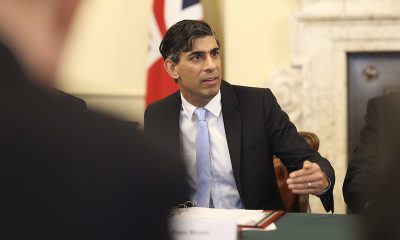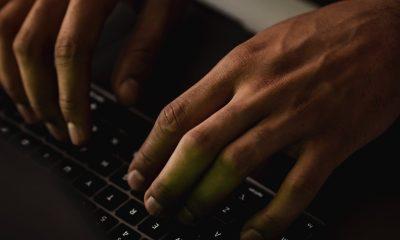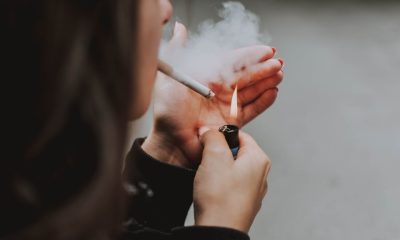Canada News
Canada-India crisis: India’s post-colonial era explains why it’s on edge about Sikh separatism

The Prime Minister, Shri Narendra Modi with the Prime Minister of Canada, Mr. Justin Trudeau, at Hyderabad House, in New Delhi on February 23, 2018. (File Photo By Prime Minister’s Office (GODL-India), GODL-India/Wikimedia Commons)
India has reportedly told Canada to withdraw about 40 of its diplomats. Any Canadian diplomats in India past Oct. 10 are expected to lose their immunity. The high-profile diplomatic crisis has confirmed rumours of longstanding tensions between the two countries over the issue of Sikh separatism in the Indian state of Punjab.
Those tensions went global after Prime Minister Justin Trudeau alleged in Canada’s Parliament that the Indian government was complicit in the murder of Canadian-Sikh independence activist, Hardeep Singh Nijjar, on Canadian soil.
India vociferously denied Canada’s claims, labelling them “absurd” and “politically motivated” to “shift the focus from Khalistani separatists who have been provided shelter in Canada and continue to threaten Indian sovereignty.”
The facts so far
Here’s what we know about the diplomatic crisis now in the international spotlight.
Canada received information from its partners in Five Eyes — an intelligence-sharing pact between the United States, the United Kingdom, Canada, Australia and New Zealand — that there was foreign interference in the murder of Nijjar, a prominent member of the Sikh community in Surrey, British Columbia.
Nijjar, a Canadian citizen wanted in India for alleged terrorist acts, was part of the Khalistan movement calling for a Sikh homeland separate from India’s Punjab state. The movement is controversial because of its organized violence against Indian officials and terrorism-motivated tactics.
At the time of his death in June 2023, Nijjar had been organizing an unofficial referendum among the Sikh diaspora in North America, Europe and Australia to validate the call for an independent Sikh homeland.
The Indian government has accused Canada of harbouring anti-Indian extremists many times, most notably at the recent G20 summit in India, when Prime Minister Narendra Modi pulled Trudeau aside for a stern exchange.
Trade talks were subsequently halted between India and Canada following the tensions at the summit. India and Canada have each expelled diplomats from their respective countries, and India has suspended visas for Canadians as the diplomatic crisis deepens.
Still to be revealed
Many details haven’t been divulged about the ongoing standoff.
Trudeau has yet to reveal the “credible evidence” provided by Five Eyes linking India to the crime. While American officials support Canada’s efforts to investigate India over Nijjar’s murder and have rejected suggestions there’s a wedge between the U.S. and Canada over the issue, there is still no tangible substantiation of Indian involvement.
The FBI has warned American-Sikh activists that their lives are in danger, while U.S. Secretary of State Antony Blinken has called on India to co-operate with Canada and ensure “accountability” over the killing. But that doesn’t necessarily mean the Indian government had a hand in Nijjar’s murder.
At this point, the tit-for-tat diplomatic expulsions, visa restrictions
by India and a Canadian travel advisory are retaliatory measures by two callow governments that are allowing respective domestic political anxieties to unfurl on the global stage.
Fraught history
India has a painful history with separatism after it gained independence from British colonialism in 1947. Partition carved the country up and created Pakistan.), a separate homeland for former Indian Muslims.
Shortly after that, diplomatic and later militaristic crisis over Jammu and Kashmir unfolded, which culminated in two wars between India and Pakistan and several armed engagements.
Even today, Jammu and Kashmir are contested territories with ongoing Kashmiri insurgencies that have had both Indian and Pakistani authorities on edge for more than 75 years.
Similarly, there are ethnic tensions and demands for self-determination in Manipur. The parallel rise of Naga nationalism in neighbouring Nagaland is also a thorny issue for Indian authorities.
There are also a number of secessionist movements in northeast states, including Assam, aimed at establishing sovereignty for Indigenous people through armed struggle.
The rising threat of Khalistan — by no means new, but the most organized and successful in terms of funding from the India global diaspora — has heightened hysteria in India.
Existential crisis
On one hand, India is the largest democracy in the world, the fifth-largest and fastest-growing major economy of the world, the fastest growing population in the world and a regional superpower.
On the other hand, India’s secessionist movements represent an existential crisis threatening everything India has worked towards for the past 76 years.
Nijjar’s murder, however, is also a matter of grave importance for Canada. If the Indian government was in fact involved in the murder of a Canadian citizen on Canadian soil, it would represent a serious violation of Canadian sovereignty that cannot be disregarded.
But it’s worth noting Trudeau’s Liberals have been losing ground to the Conservative Party of Canada in public opinion polls for months. Given the Sikh diaspora in Canada — the largest community of Punjabis outside India — has traditionally voted Liberal, some regard Trudeau’s focus on Nijjar’s murder as political opportunism.
But after Trudeau struck a deal to work together with the NDP — headed by Jagmeet Singh, a self-proclaimed Khalistani supporter — it would be difficult for him to disregard Sikh rights.
Trudeau may view the Nijjar incident as a lifeboat that could help keep him keep afloat as his popularity sinks. But that could easily have a disastrous impact with other segments of the Indian diaspora, especially Hindus who oppose Sikh separatism and might now be dealing with racist assumptions about Indians following the prime minister’s allegations.
It’s clear Trudeau has placed a domestic battle from a distant land in the international spotlight as he’s challenged a rising superpower.
But both Canada and India will need to calculate the risks and repercussions of such a high-profile diplomatic rift in a highly globalized world.![]()
![]()
Noor Mirza, Researcher, Balsillie School of International Affairs
This article is republished from The Conversation under a Creative Commons license. Read the original article.





















